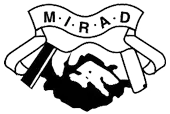Beyond Outrage Unveiling the Complexities of Troubling Number Plates
Reg Plates ArticleBeyond Outrage Unveiling the Complexities of Troubling Number Plates

The sight of a car with a seemingly offensive number plate can trigger immediate outrage. In Australia, cases like the "88-SS" plate sparking concerns about neo-Nazi symbolism raise important questions. While initial reactions are understandable, delving deeper reveals a complex landscape where intent, interpretation, and context all play crucial roles. This exploration, exceeding 1000 words, aims to go beyond outrage and offer a nuanced understanding of these sensitive issues.
Decoding the Numbers: Intent vs. Impact
Attributing malicious intent solely based on a number plate sequence is dangerous. The "88-SS" case, for instance, involved a driver born in 1988 with initials SS. While the combination undeniably echoes hateful symbols, the driver's explanation holds weight. Examining intent requires understanding personal connections to numbers (birth years, lucky numbers) and the cultural context surrounding them.
However, acknowledging intent doesn't negate the impact. Even unintentional references to harmful ideologies can cause distress and fear, particularly for marginalized communities. The "88-SS" plate, for example, likely evoked painful memories for Holocaust survivors and their descendants. Recognizing this impact is crucial, even if intent differs.
Beyond Black and White: The Nuances of Symbolism
Number plate symbolism is rarely clear-cut. Take, for instance, the Confederate flag. While undeniably associated with white supremacy in the US, it holds complex historical and cultural meanings for some in Australia. Similarly, certain numerical combinations might carry harmless connotations in one context but become offensive in another. This highlights the importance of considering context and avoiding blanket judgments.
Balancing Freedom and Responsibility: The Role of Regulation
Australia, like many countries, grants individuals the freedom to personalize their vehicles. However, this freedom comes with the responsibility to consider the potential impact of their choices. Regulatory bodies like VicRoads face the challenge of balancing these competing interests.
While outright bans exist for blatantly offensive symbols, the subjective nature of some number plate combinations creates difficulties. VicRoads, in the "88-SS" case, acknowledged the potential for offense but ultimately allowed the plates, citing the driver's intent and the absence of a clear regulation violation. This highlights the ongoing debate about the appropriate level of regulation and the need for clear guidelines that consider both freedom and potential harm.
Moving Beyond Outrage: Towards Constructive Dialogue
Instead of solely focusing on outrage, it's crucial to engage in constructive dialogue. This involves:
Understanding context: Recognizing the potential for multiple interpretations and avoiding assumptions about intent.
Empathy and education: Acknowledging the impact certain symbols can have on different communities and fostering open discussions about their historical and cultural significance.
Constructive criticism: Holding regulatory bodies accountable for developing clear and effective guidelines while recognizing the challenges they face.
Ultimately, addressing "troubling" number plates requires moving beyond outrage and engaging in nuanced conversations that consider individual choices, societal impact, and the role of regulation. By fostering understanding and empathy, we can create a space where freedom of expression is balanced with respect for all communities.
This exploration has focused on Australia, but similar issues exist in many countries with personalised number plate systems.
The rise of online platforms for buying and selling used plates adds another layer of complexity, making it harder to track ownership and intent.
Educational initiatives aimed at raising awareness about the potential impact of certain symbols can play a significant role in preventing unintentional offense.
By acknowledging these complexities and fostering constructive dialogue, we can move beyond knee-jerk reactions and create a more inclusive and respectful society.
It all started back in 1991 when our love and obsession for private number plates was born.
Since then we have grown steadily over the years to become a leading light in the private number plate industry holding our own stock of high quality number plates and many thousands of registrations we are selling for trade and private clients including many celebrities and sports personalities.


- FREE TRANSFER SERVICE - your paperwork is handled by our trained team
- OVER 30 YEARS EXPERTISE - long established and trusted company
- DVLA RECOGNISED RESELLER - linked directly from the DVLA website
- TRADE ASSOCIATION MEMBERS - MIRAD and CN Guild members


